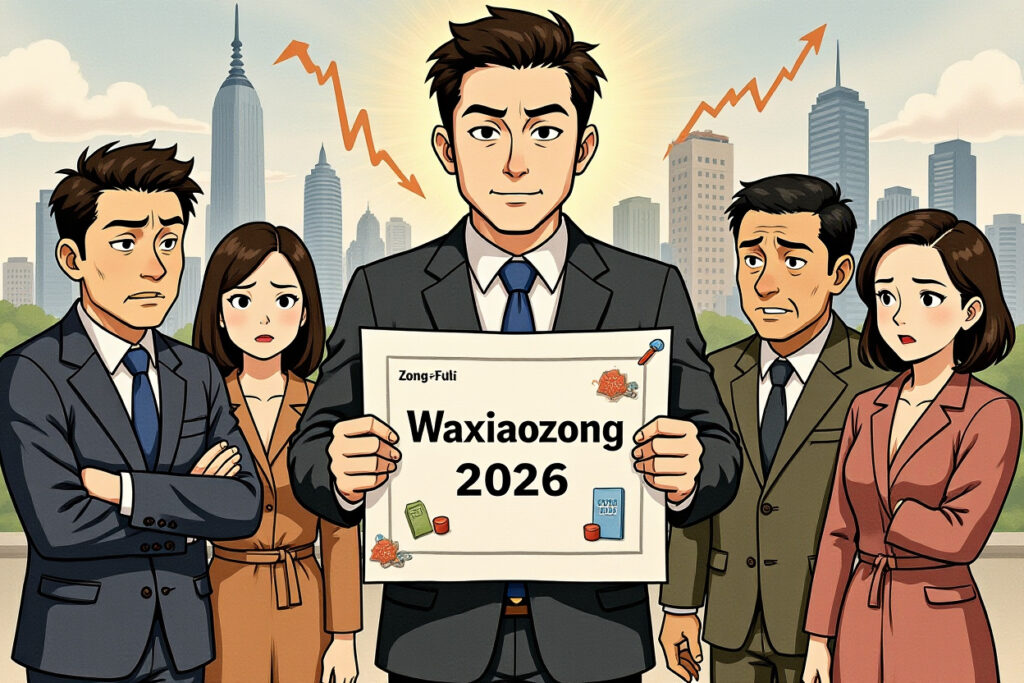Regulatory Tsunami Hits Chinese Markets
Beijing’s financial regulators have unleashed their most aggressive campaign against corporate fraud in decades, implementing a “whole-chain accountability” approach that leaves no participant in financial misconduct untouched. The recent 229 million yuan penalty against Dongfangtong (东方通) represents just the tip of the enforcement iceberg as authorities deploy coordinated administrative, criminal, and civil measures against market manipulators.
The Dongfangtong Precedent
Dongfangtong’s case exemplifies the new enforcement reality. The company received a 229 million yuan fine for fabricating 430 million yuan in revenue and 310 million yuan in profits between 2019-2023. Seven executives faced combined penalties of 44 million yuan, while controlling shareholder Huang Yongjun (黄永军) received a 10-year market ban and potential criminal prosecution.
Anatomy of a Fraud Scheme
The Dongfangtong case began with a questionable 2018 acquisition of Beijing Taice Technology (北京泰策科技) for 600 million yuan – representing a 12x premium over its 50 million yuan net assets. The acquisition included a profit guarantee requiring Taice to deliver 227 million yuan in cumulative profits over four years, with former shareholders committing to purchase 100 million yuan of Dongfangtong stock.
The Unraveling
By 2023, Huang attempted to sell Taice Technology at a 33% discount to its acquisition price, raising suspicions. When a prospective buyer discovered accounting “errors” showing 110 million yuan in overstated revenue within Taice’s approximately 700-800 million yuan total revenue, the deal collapsed and triggered regulatory scrutiny.
The Whole-Chain Accountability Framework
China’s whole-chain accountability approach represents a fundamental shift from previous enforcement practices. Previously, regulators primarily targeted primary offenders with modest penalties. The new framework encompasses:
– Third-party collaborators in fraudulent schemes
– Financial intermediaries and service providers
– Suppliers facilitating fictitious transactions
– All executives and board members overseeing misconduct
Expanded Enforcement Mechanisms
In 2024 alone, the China Securities Regulatory Commission (CSRC, 中国证监会) investigated 128 cases, imposed penalties in 61 matters, sanctioned 426 entities and individuals, and collected 5.137 billion yuan in penalties. More significantly, regulators now routinely refer cases for criminal prosecution while enabling investor class-action lawsuits.
Three-Pronged Enforcement Strategy
The whole-chain accountability regime operates through coordinated administrative, criminal, and civil channels:
Administrative Sanctions
Regulators now impose penalties that actually deter misconduct, moving beyond symbolic fines. The Dongfangtong penalty of 229 million yuan for 430 million yuan in fabricated revenue contrasts sharply with the March 2024 case where Dongfang Group (东方集团) received only 10 million yuan penalty for fabricating 16 billion yuan in revenue.
Criminal Prosecutions
Between 2022-2024, prosecutors filed 69 cases against 185 individuals for capital market fraud, including上市公司大股东 (listed company major shareholders), 实控人 (actual controllers), 董监高 (directors, supervisors, and senior management), intermediaries, and third-party collaborators. The Supreme People’s Procuratorate (最高人民检察院) designated 31 cases for special supervision, with 27 already progressing to public prosecution.
Civil Compensation
Investors now have enhanced capabilities to seek recovery through civil lawsuits. The CSRC’s expanded evidence gathering and violation findings provide crucial support for shareholder claims, creating additional financial exposure beyond regulatory penalties.
Industry-Wide Implications
The whole-chain accountability approach extends beyond listed companies to encompass financial intermediaries, accountants, lawyers, and assessment agencies. Recent cases have seen accountants imprisoned for knowingly certifying false financial statements, while intermediaries face severe consequences for facilitating fraud.
The Yuebo Power Case Example
The Yuebo Power (越博动力) case established that third parties participating in fictitious business transactions would be deemed “joint violators” subject to parallel enforcement actions. This precedent significantly expands liability beyond company insiders.
Market Impact and Investor Considerations
The intensified enforcement creates both risks and opportunities for investors in Chinese equities:
Short-Term Volatility
Increased scrutiny may reveal additional accounting issues and governance problems at previously questionable companies, potentially causing sharp price adjustments. Investors should conduct enhanced due diligence on companies with:
– Significant acquisitions with high premiums
– Unusual related-party transactions
– Consistent achievement of earnings targets with minimal variance
– Frequent changes in auditors or financial controllers
Long-Term Market Quality Improvement
The whole-chain accountability initiative ultimately aims to improve market integrity and protect legitimate investors. As enforcement reduces fraudulent practices, valuation metrics should become more reliable, and risk premiums for Chinese equities should decline.
Compliance Imperatives for Market Participants
Companies operating in China’s capital markets must urgently enhance their compliance frameworks:
– Implement robust internal controls and whistleblower mechanisms
– Conduct thorough due diligence on acquisition targets and business partners
– Ensure accounting practices conservatively reflect economic reality
– Maintain transparent communication with regulators and investors
Financial intermediaries must similarly strengthen their safeguards against facilitating misconduct, implementing enhanced verification procedures and conflict management protocols.
The New Enforcement Reality
China’s whole-chain accountability regime represents a permanent elevation of enforcement standards rather than a temporary campaign. The coordination between CSRC, Ministry of Public Security (公安部), and Supreme People’s Procuratorate ensures sustained pressure against market misconduct.
The days of symbolic penalties and limited liability for financial fraud have ended. Market participants must adapt to this new reality where violations trigger severe financial, professional, and personal consequences across entire transaction chains. For investors, this enforcement escalation ultimately strengthens China’s capital markets foundation, though the transition may prove turbulent for inadequately prepared companies and intermediaries.




